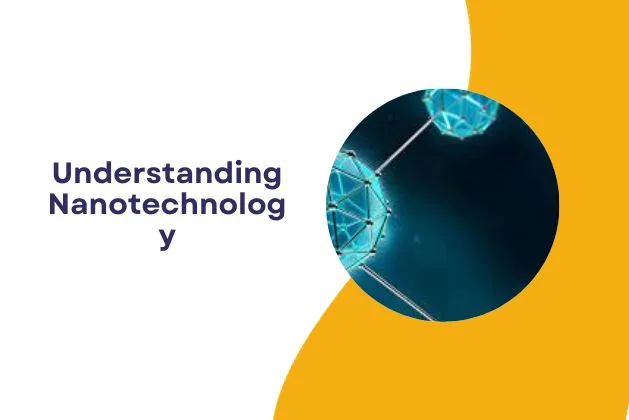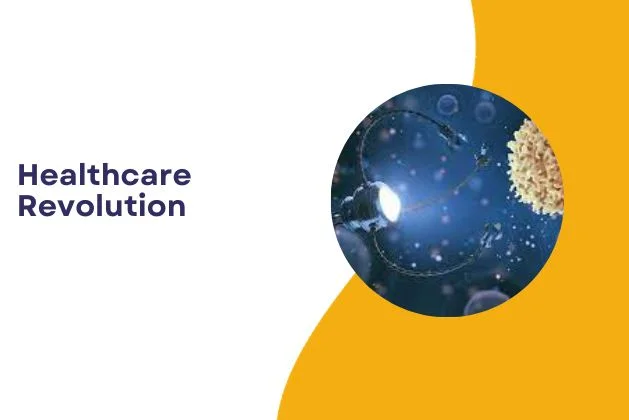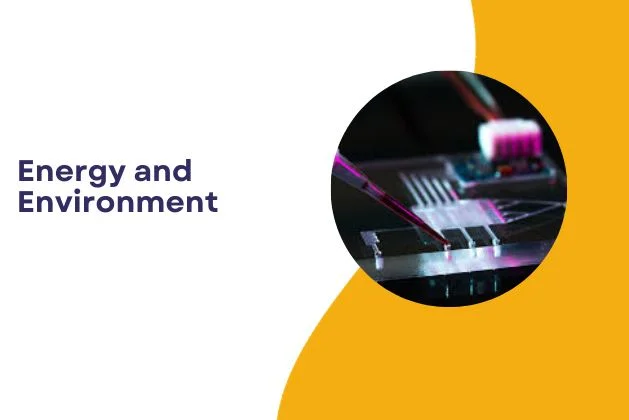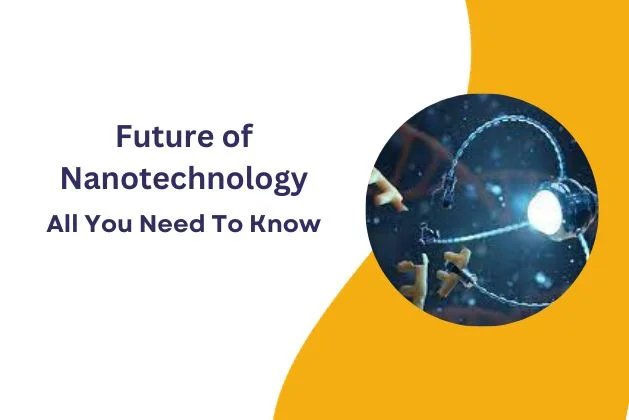Table of Contents
ToggleIntroduction
The world of the future of nanotechnology, with its constant and rapid advancements, is a field that shines bright with promise and potential for groundbreaking innovation.
This cutting-edge technology operates on a minuscule scale, working with materials and structures at the nanoscale level, approximately one billionth of a meter.
As we gaze into the horizon of possibilities, it becomes increasingly evident that nanotechnology has the power to completely transform our way of life.
With its ability to manipulate matter at such a tiny scale, future of nanotechnology offers endless possibilities for improvement and progress in various industries.
From healthcare to manufacturing, from energy production to agriculture, this emerging field has the potential to revolutionize how we approach and solve problems.
For example, in the medical field, researchers are exploring ways to use nanoparticles for targeted drug delivery and developing innovative diagnostic tools for early disease detection.
Understanding Nanotechnology

The future of nanotechnology, a rapidly advancing field of science and engineering, is centered around the manipulation of matter at the atomic or molecular level.
This means working with materials on a scale that is smaller than 100 nanometers, which is equivalent to one billionth of a meter.
To put this into perspective, a single strand of human hair measures around 80,000 nanometers in width.
At such incredibly small scales, the properties of materials behave differently than they do at larger scales.
For instance, materials may exhibit unique properties such as increased strength, improved conductivity, or enhanced reactivity when manipulated at the nanoscale.
This opens up a whole new world of possibilities for designing and creating novel materials with enhanced functionalities.
By utilizing precise tools and techniques, scientists and engineers are able to manipulate individual atoms and molecules to create structures and devices with specific properties and functions.
This has led to groundbreaking advancements in various industries such as medicine, electronics, energy, and materials science.
Healthcare Revolution

The future of Nanotechnology has emerged as a highly promising field in the realm of healthcare, offering immense potential for groundbreaking advancements.
Specifically, the application of nanotechnology in medicine, known as nanomedicine, has the ability to completely transform diagnostics, treatment methods, and drug delivery systems.
By utilizing nanoparticles with precise engineering, nanomedicine enables targeted approaches towards specific cells or tissues within the body.
This allows for unparalleled accuracy and effectiveness in treating various medical conditions, while minimizing any potential side effects.
Picture a future where diseases are no longer detected and treated at a macroscopic level, but rather at the molecular level.
With the aid of nanotechnology, medical interventions can be tailored to an individual’s unique genetic makeup and specific health needs.
This personalized approach holds immense promise for achieving highly efficient and successful treatments.
Furthermore, nanomedicine also has the potential to improve current diagnostic techniques by providing more accurate and sensitive detection methods.
Energy and Environment

In recent years, the field of the future of nanotechnology has emerged as a promising solution to some of the most pressing global issues related to energy and the environment.
With its ability to manipulate matter at the nanoscale level, this cutting-edge technology has shown immense potential in revolutionizing the way we produce, store, and utilize energy.
By incorporating future of nanotechnology into various energy systems, such as solar cells and energy storage devices, researchers have been able to greatly enhance their efficiency and performance.
This not only leads to more sustainable and cost-effective methods of energy production but also helps reduce our carbon footprint.
Moreover, future of nanotechnology has proven to be a valuable tool in addressing environmental concerns.
Through its use in pollution detection and remediation processes, it has aided in identifying and removing harmful pollutants from the environment.
This is particularly significant as pollution continues to be a major threat to our ecosystems and public health.
Electronics and Computing

As technological advancements continue to push the boundaries of miniaturization in traditional electronics, the field of future of nanotechnology has emerged as a promising alternative for the next generation of computing devices.
With the use of tiny structures such as quantum dots and nanowires, along with other nanoscale components, possibilities for faster, smaller, and more energy-efficient electronics have become increasingly feasible.
Among these advancements is the development of quantum computing, a subset within the realm of the future of nanotechnology that has sparked excitement and speculation due to its potential to revolutionize information processing.
By harnessing the principles of quantum mechanics, this cutting-edge technology has the ability to solve complex problems at speeds that were once unimaginable with classical computers.
Materials Science
Nanotechnology is reshaping the landscape of materials science.
Nanomaterials exhibit unique properties that can be tailored for specific applications.
From ultra-light and strong materials for aerospace to self-healing and adaptive materials, the future will see a proliferation of innovative substances that redefine the capabilities of various industries.
Also Read: General Register Organization
Challenges and Ethical Considerations
As we look towards the future of nanotechnology, its potential for groundbreaking advancements and innovative solutions is undeniably exciting.
However, it is vital to also acknowledge and address the potential challenges and ethical implications that come with such a powerful technology.
One pressing concern is the potential environmental impact of nanoparticles.
As these minuscule particles are designed to have unique properties and functions, there is a risk that they may pose a threat to the environment if not properly managed.
This could include the release of harmful substances or disruption of natural ecosystems. Therefore, it is essential for researchers and developers to carefully consider and mitigate any potential negative effects on the environment.
Furthermore, the ethical use of future of nanotechnology in medicine also requires careful consideration.
While its applications in healthcare hold great promise for improving treatments and diagnoses, there are concerns about preserving patient autonomy and privacy.
Conclusion
As we stand at the threshold of a new era, the possibilities and potential of nanotechnology are undeniably exhilarating.
Its groundbreaking innovations have the potential to revolutionize numerous industries, such as healthcare, energy, electronics, and materials science.
The ability to manipulate matter at the nanoscale level opens up a world of transformative applications.
However, with this great power comes an even greater responsibility.
It is crucial that we approach the development and integration of nanotechnology with ethical considerations at the forefront.
While the possibilities may be endless, it is essential to ensure that these advancements are used for the betterment and sustainability of humanity as a whole.
The journey into the realm of future of nanotechnology is still in its infancy, and we have only scratched the surface of its vast potential.
The infinitesimally small particles that define this field hold within them endless possibilities for advancement and progress.
Frequently Asked Questions (FAQs)
Nanotechnology involves manipulating matter at the nanoscale, typically at dimensions less than 100 nanometers. This field allows scientists and engineers to design and manipulate materials at the molecular or atomic level, unlocking unique properties and functionalities.
Nanotechnology holds immense promise in healthcare. In the future, it is expected to revolutionize diagnostics, drug delivery, and treatment methods. Nanoparticles can be engineered to target specific cells or tissues, providing more precise and efficient medical interventions with minimal side effects.
Nanotechnology is poised to play a crucial role in addressing environmental issues. Nanomaterials can enhance energy storage and conversion, improve the efficiency of solar cells, and contribute to sustainable water treatment and pollution detection methods.
In the future, nanotechnology is expected to enable the development of smaller, faster, and more energy-efficient electronic devices. Components such as quantum dots and nanowires will likely redefine the capabilities of computing, potentially leading to advancements in quantum computing.
Nanotechnology is reshaping materials science with applications ranging from ultra-light and strong materials for aerospace to self-healing and adaptive materials. The future will likely see the development of innovative substances with unique properties tailored for specific industrial and commercial applications.
Challenges include potential environmental impacts of nanoparticles, ethical considerations in medicine, and responsible development of artificial intelligence within nanotechnology. Ensuring safety, ethical use, and sustainability are critical aspects that researchers and developers need to address.
Nanotechnology is expected to contribute significantly to energy solutions. It can enhance the efficiency of solar cells, improve energy storage devices, and enable more efficient energy conversion processes, thereby addressing global energy challenges.
Ethical considerations include the responsible use of nanotechnology in medicine, addressing potential environmental impacts, and ensuring the ethical development of artificial intelligence within nanotechnology. Balancing innovation with ethical guidelines is crucial for the responsible advancement of the field.
Quantum computing, a subfield of nanotechnology, involves using the principles of quantum mechanics to perform information processing. It holds the potential to solve complex problems at speeds unimaginable with classical computers. Quantum dots and other nanoscale components play a crucial role in the development of quantum computing devices.
Society can ensure responsible development by establishing ethical guidelines, promoting transparency in research, and fostering interdisciplinary collaboration. Engaging in open dialogues about the potential impacts of nanotechnology on society and the environment is essential for shaping a future that balances innovation with ethical considerations.



